Find Help
More Items From Ergsy search
-
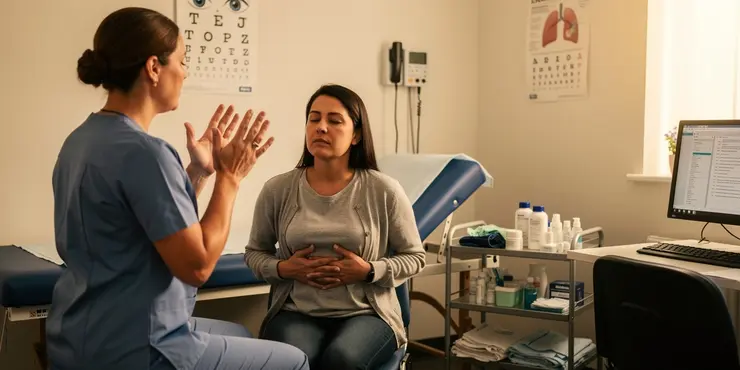
Tips for breathlessness | NHS
Relevance: 100%
-
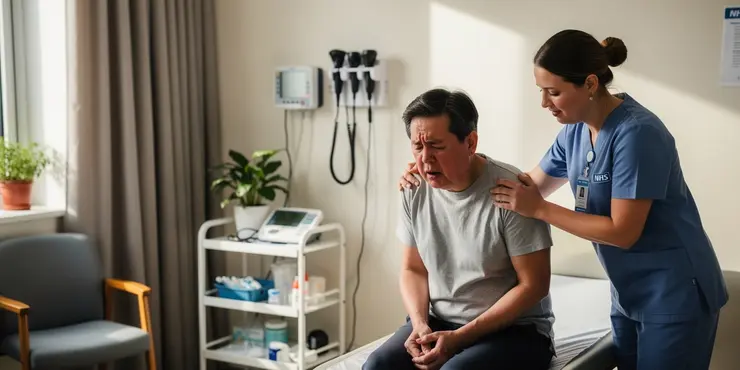
Positioning for Breathless Patient
Relevance: 100%
-
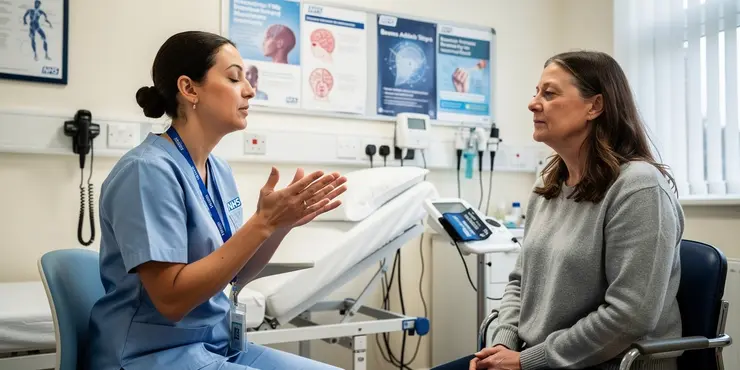
Long COVID - Managing Breathlessness
Relevance: 96%
-
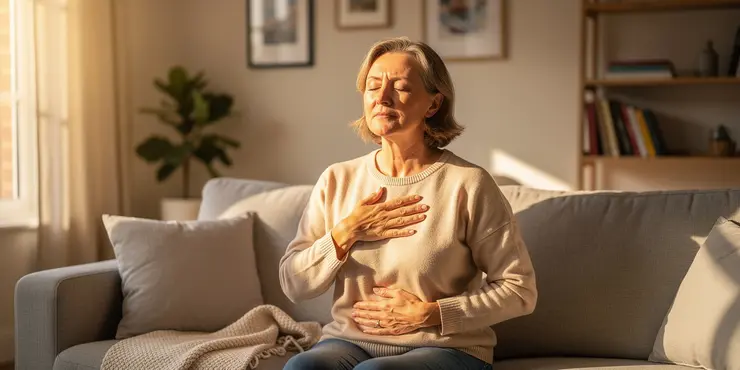
Breathlessness after COVID-19 - helpful techniques
Relevance: 87%
-
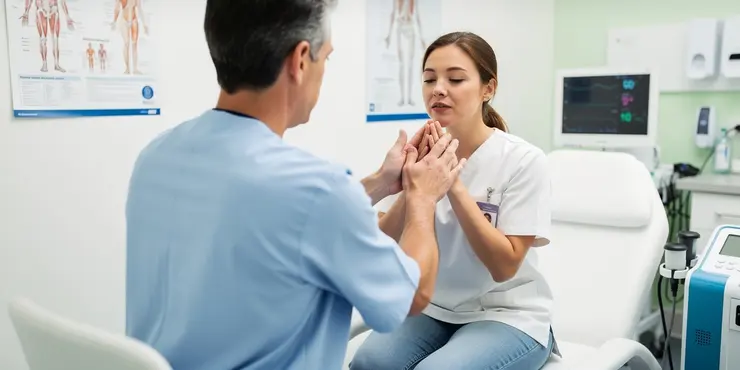
How to retrain your breathing | Part 2 | Asthma, long covid or breathlessness
Relevance: 77%
-
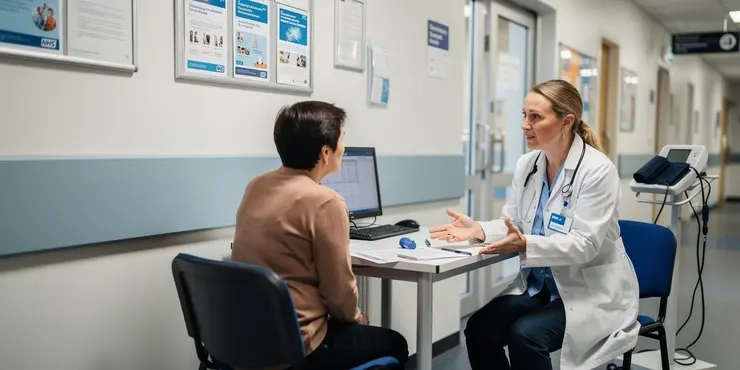
Acute COPD in Adults: Antibiotics or not - Dr Nick Francis
Relevance: 23%
-
Can air physiotherapy help with COVID-19 recovery?
Relevance: 18%
-

Can air physiotherapy prevent respiratory infections?
Relevance: 18%
-
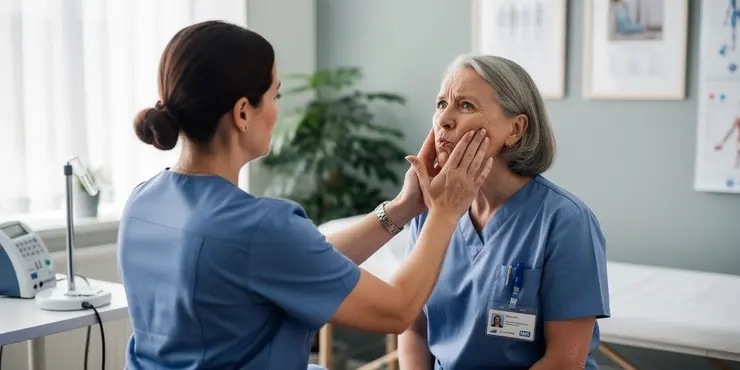
NHSGGC - Respiratory Physiotherapy Service: Self-Management
Relevance: 17%
-
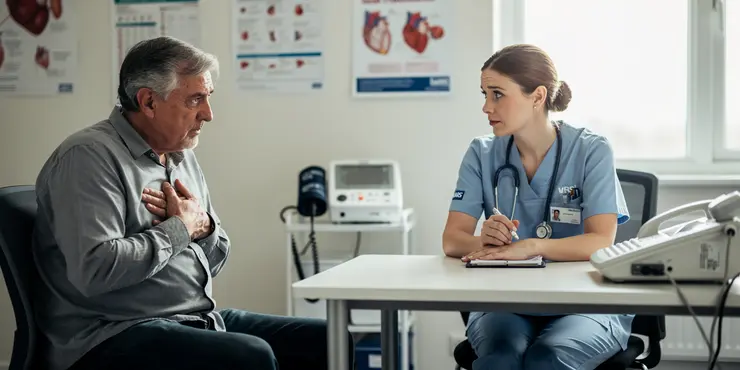
What are the common symptoms of heart failure?
Relevance: 16%
-
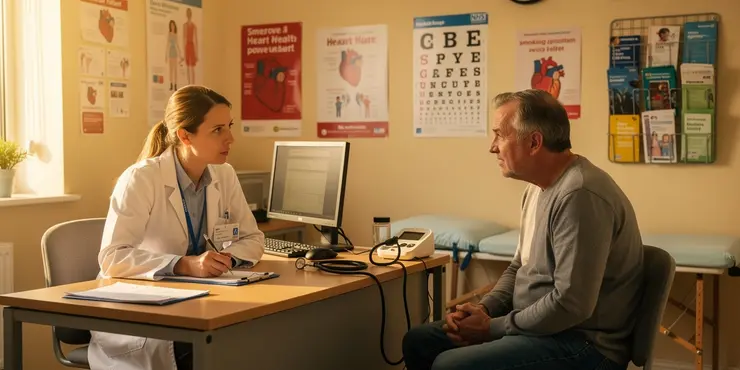
What should I do if I experience symptoms of heart failure?
Relevance: 16%
-
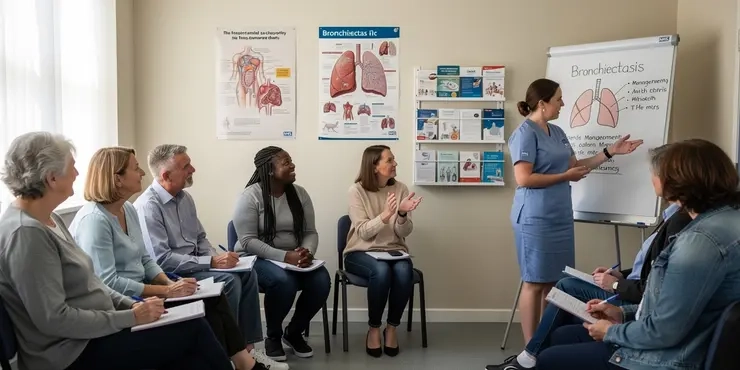
Bronchiectasis Class
Relevance: 13%
-
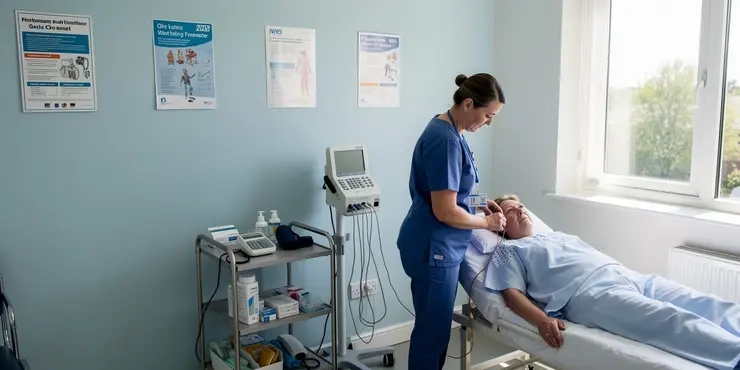
Electrocardiogram ECG
Relevance: 13%
-
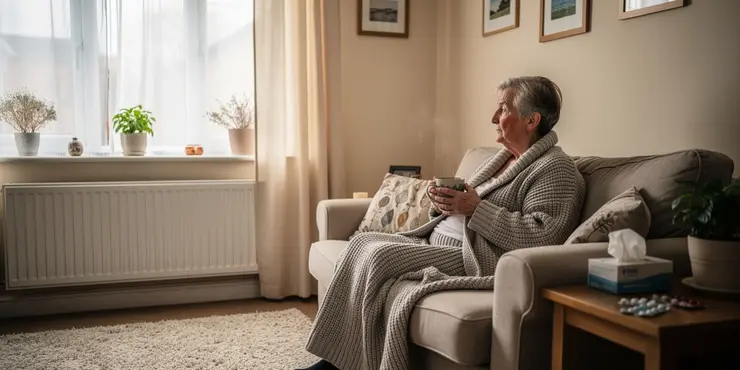
Chest infection: what should I do?
Relevance: 12%
-
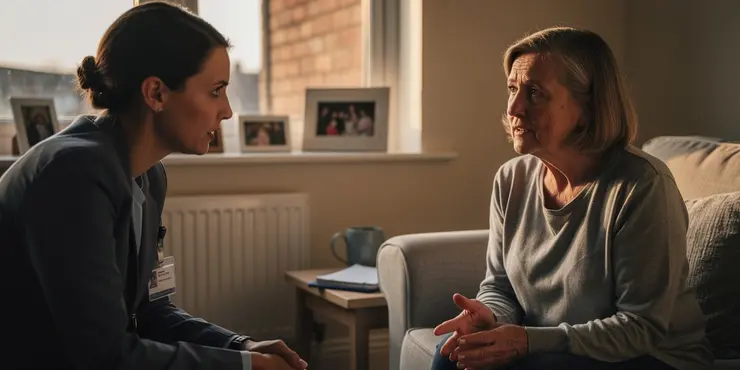
Sepsis - a patient story
Relevance: 12%
-
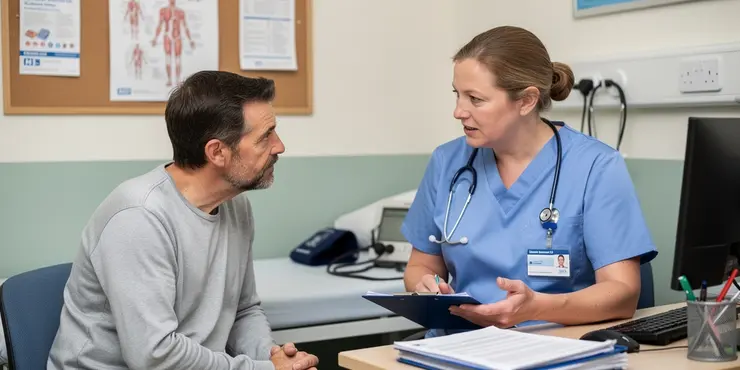
Is Baxdrostat used in treating heart failure?
Relevance: 12%
-
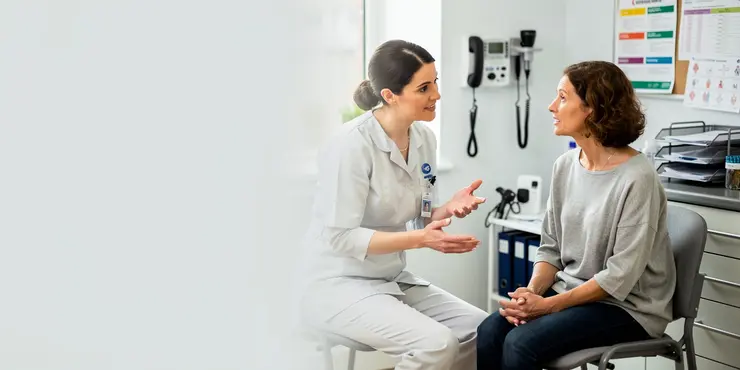
Does Ozempic cause allergic reactions?
Relevance: 12%
-
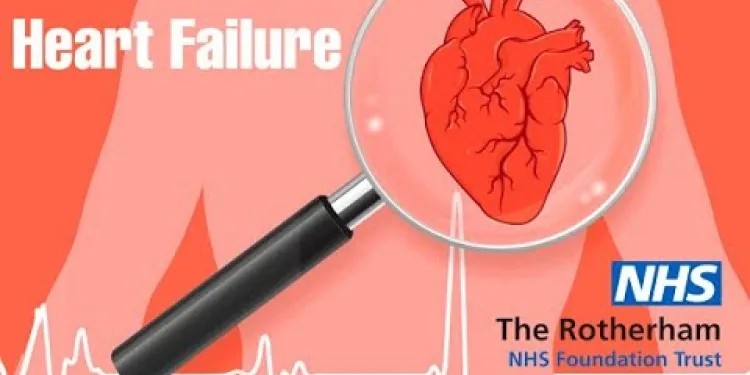
Heart Failure : Symptoms of heart failure
Relevance: 12%
-
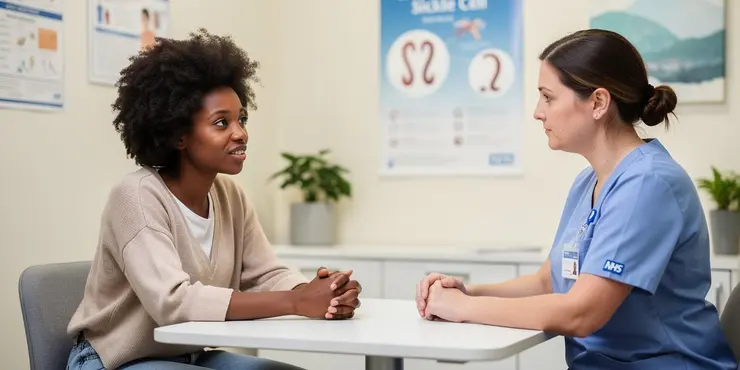
Sickle cell anaemia | NHS
Relevance: 12%
-
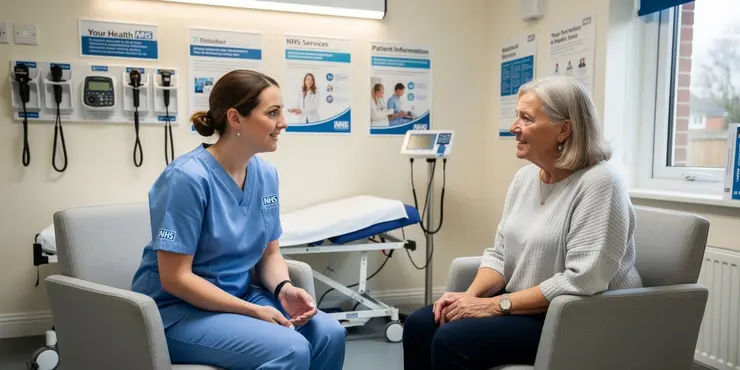
How often should someone with asthma see a doctor?
Relevance: 12%
-
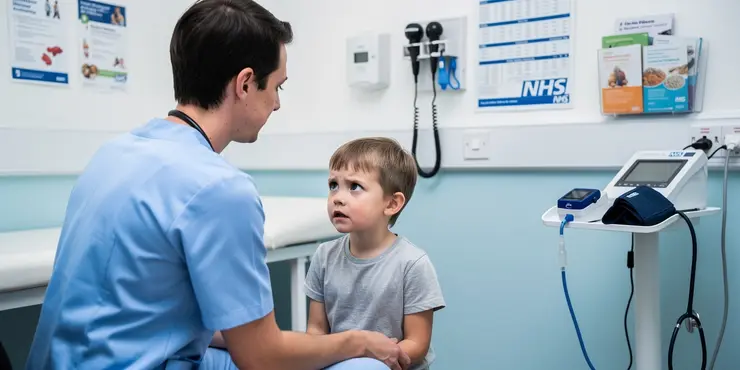
Rise in Childhood Asthma Linked to Air Pollution in Urban Areas
Relevance: 12%
-
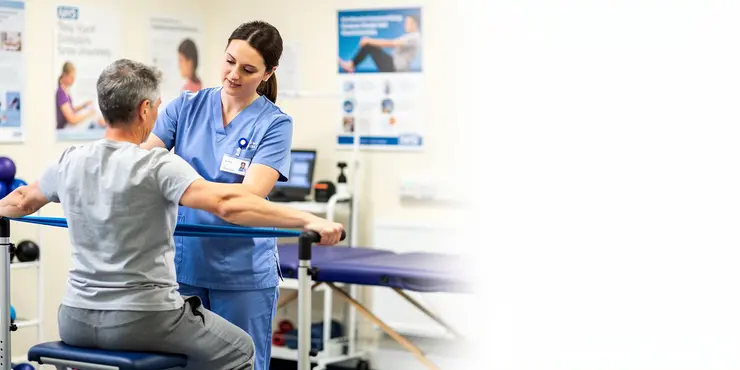
How does exercise impact heart failure?
Relevance: 12%
-
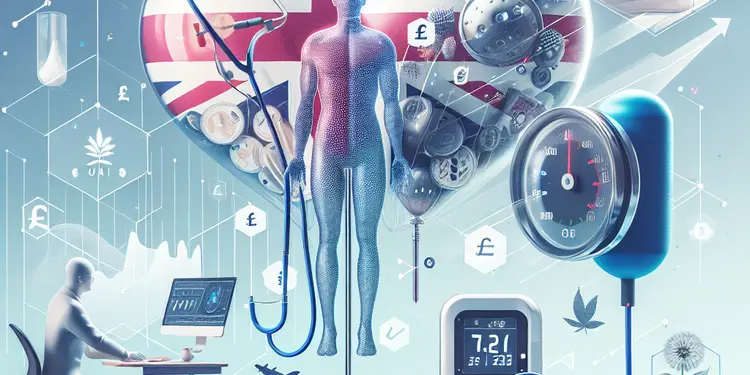
Who can benefit from air physiotherapy?
Relevance: 11%
-
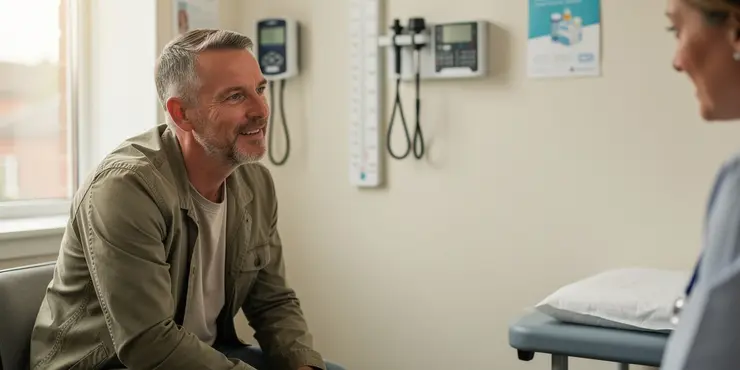
Bernard's Story - Lung Transplant
Relevance: 11%
-
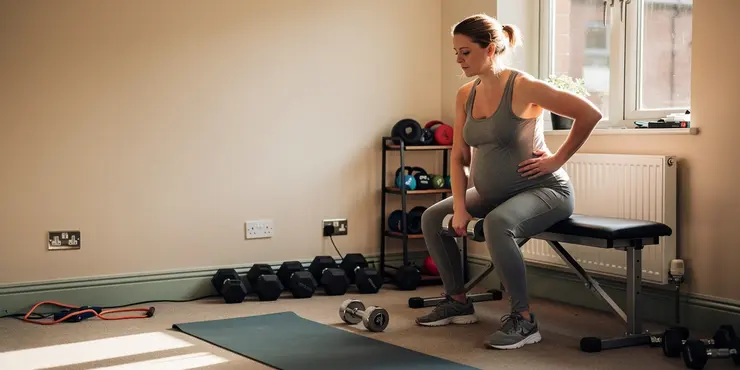
Should I avoid lying on my back during exercise?
Relevance: 11%
-
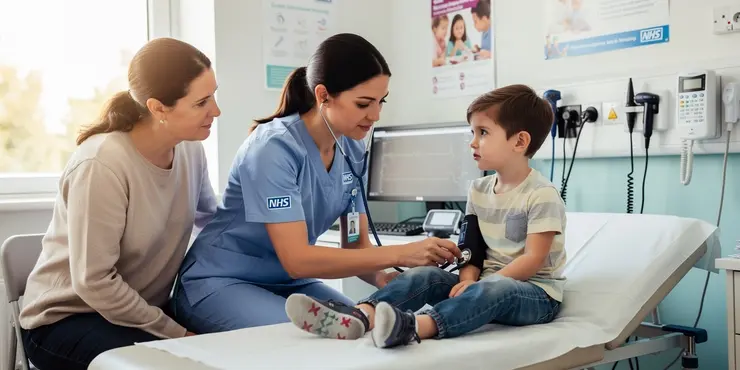
NHS RightCare Scenario: Sepsis
Relevance: 11%
-
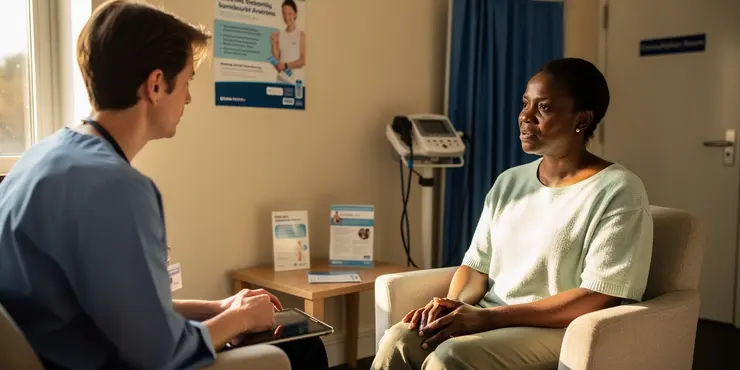
What are the complications of sickle cell disease?
Relevance: 11%
-
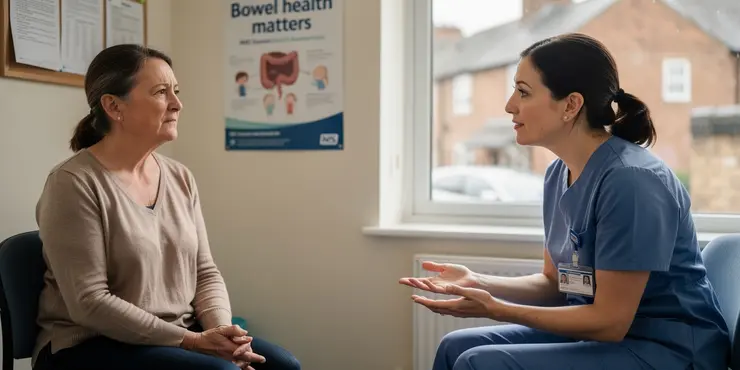
Can bowel cancer spread to other parts of the body?
Relevance: 11%
-
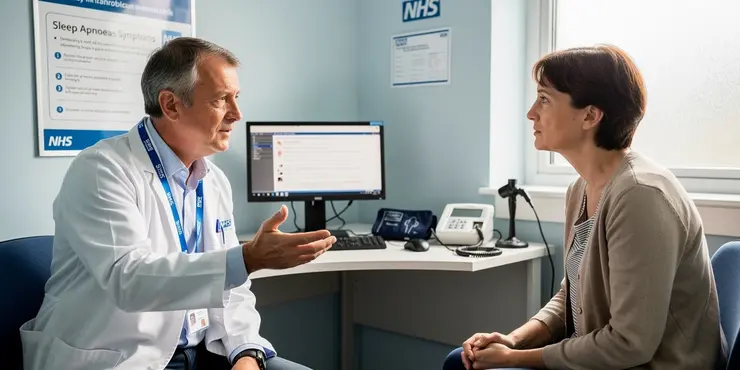
What are common symptoms of sleep apnea?
Relevance: 11%
-
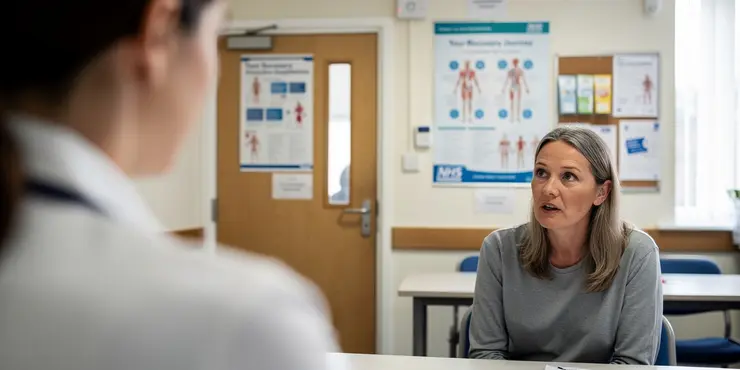
What are the long-term effects of a heart attack?
Relevance: 11%
-
New Research Sheds Light on Long Covid Effects
Relevance: 11%
-

Heart Failure : The normal heart
Relevance: 9%
-
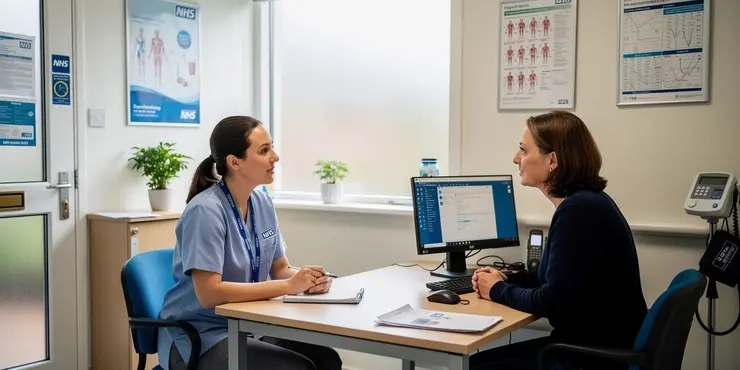
Bronchiectasis class presentation v2
Relevance: 9%
-
What are the symptoms of methanol poisoning?
Relevance: 7%
-
Leukaemia: What are the signs and symptoms? | NHS
Relevance: 7%
-
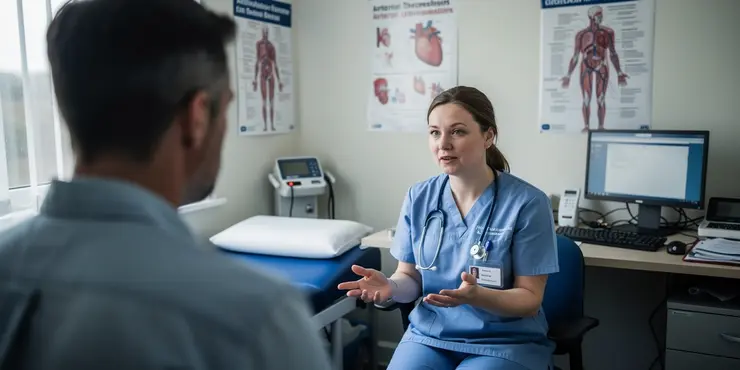
What are the symptoms of arterial thrombosis?
Relevance: 7%
-
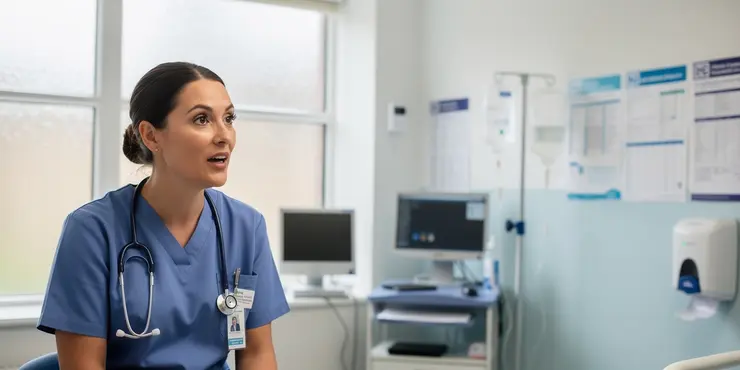
South London Arrhythmia Nurses Forum (16 June 2022)
Relevance: 7%
-
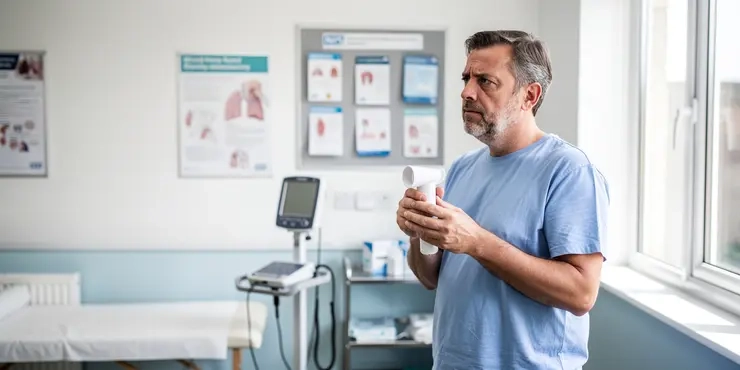
COPD | NHS
Relevance: 7%
-
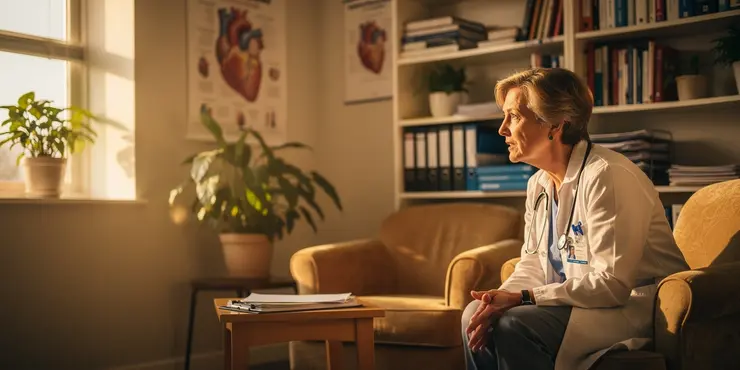
Heart Failure : When the heart becomes stiff?
Relevance: 6%
-
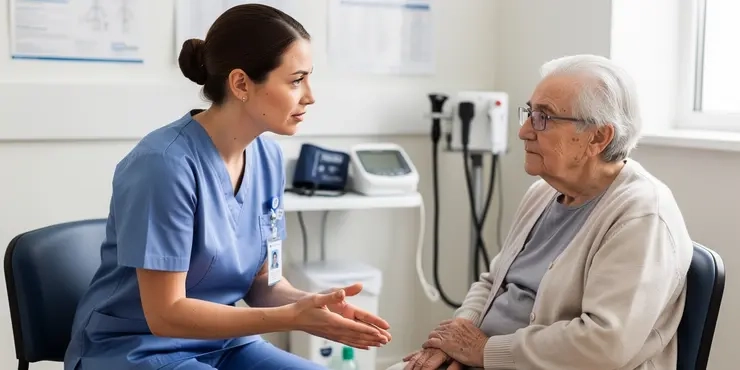
Heart Failure : Treatment and monitoring of fluid retention
Relevance: 6%
Tips for Breathlessness | NHS
Understanding Breathlessness
Breathlessness, medically known as dyspnea, is a common experience that can be caused by various conditions, ranging from temporary factors like anxiety and mild asthma to more serious issues like chronic obstructive pulmonary disease (COPD) or heart problems. It's essential to understand the underlying causes of breathlessness in order to manage it effectively. Consult your GP for an accurate diagnosis if you frequently experience shortness of breath.Practical Techniques to Manage Breathlessness
One effective way to manage breathlessness is through controlled breathing techniques. Try pursed-lip breathing, where you inhale through your nose for two counts and exhale slowly through pursed lips for four counts. This method helps in slowing down your breathing and improves air exchange. Additionally, diaphragmatic breathing, also known as belly breathing, encourages full oxygen exchange, which can be particularly helpful during an episode of breathlessness.Positioning and Posture
The way you position your body can significantly impact your breathing. Certain positions can ease the work of breathing and provide relief. Sitting forward on a chair, leaning slightly forward with your elbows resting on your knees, or standing while leaning against a wall can help open up your lungs and airways. Experiment with different positions to identify what works best for you.Environmental Factors
Ensure your living environment is conducive to easy breathing. Make sure rooms are well-ventilated and free from irritants like smoke, strong odours, and excess dust. Humidifiers can help maintain optimal humidity levels, which may prevent dry airways and irritation. Avoid exposure to extreme temperatures, as very hot or cold air can exacerbate breathlessness.Staying Active and Healthy
Regular physical activity can improve overall lung capacity and efficiency. Engage in activities like walking, swimming, or specific exercises recommended by your healthcare provider. Additionally, maintaining a healthy weight can alleviate undue pressure on your lungs and heart, thus reducing episodes of breathlessness. Make sure to consult your GP before starting any new exercise regimen, especially if you have a pre-existing condition.Medication and Medical Advice
If you have an underlying medical condition that causes breathlessness, your GP may prescribe medications to help manage the symptoms. It's vital to follow the prescribed treatment plan diligently and attend regular check-ups. Use inhalers and medications as directed, and never hesitate to seek professional advice if your breathlessness worsens or is accompanied by other concerning symptoms.Relaxation and Lifestyle Adjustments
Managing stress and anxiety can significantly improve your breathing patterns. Practices such as yoga, meditation, and mindfulness can help in reducing the frequency and severity of breathlessness episodes. Ensure you're getting enough sleep, eating a balanced diet, and avoiding activities that may trigger excessive breathlessness. By understanding these tips and making appropriate lifestyle adjustments, you can effectively manage and reduce breathlessness. Always consult with healthcare professionals for personalised advice and treatment.Tips for Breathlessness | NHS
Understanding Breathlessness
Breathlessness means finding it hard to breathe. This can happen for many reasons, like feeling anxious, having asthma, or more serious problems like lung or heart issues. It is important to find out why you feel breathless. See your doctor if you often find it hard to breathe.Ways to Make Breathing Easier
You can try special ways to breathe to help with breathlessness. One way is pursed-lip breathing. Breathe in through your nose for two seconds. Then, breathe out slowly through your mouth, like you're blowing through a straw, for four seconds. This helps slow your breathing and move air better. Another way is belly breathing. This helps get more air in and out of your lungs, which can be helpful when you can't breathe well.Positioning and Posture
How you sit or stand can help you breathe better. Some positions can make it easier to breathe. You can try sitting on a chair and leaning forward, resting your elbows on your knees. Or you can stand and lean against a wall. These can help open up your lungs. Try different positions to see what helps you the most.Environmental Factors
Make sure your home helps you breathe easily. Open windows to let fresh air in. Keep the room clear of smoke and strong smells. Using a humidifier can stop your throat from getting dry. Also, avoid very hot or cold places. This can make breathing harder.Staying Active and Healthy
Moving your body can help your lungs work better. Walking, swimming, or special exercises can be good. Staying a healthy weight is also important. It can take pressure off your lungs and heart. Always talk to your doctor before starting new exercises.Medication and Medical Advice
If you have a health problem that makes you breathless, your doctor might give you medicine to help. Make sure you follow your doctor’s instructions and go to your check-ups. Use your inhaler or medicine as your doctor tells you. See a doctor if your breathing gets worse or if you have other worrying symptoms.Relaxation and Lifestyle Adjustments
Feeling less stressed can help you breathe better. Try things like yoga or meditation to relax. Make sure you get enough sleep and eat healthy food. Stay away from things that make you too breathless. By using these tips and changing some habits, you can manage and reduce breathlessness. Always talk to healthcare professionals for advice that is right for you.Frequently Asked Questions
What should I do when I feel breathless?
Stay calm and try breathing techniques such as pursed-lip breathing or diaphragmatic breathing. Sit in a comfortable position and try to relax your shoulders.
What is pursed-lip breathing?
Pursed-lip breathing is a technique where you breathe in through your nose for two counts and out through your mouth for four counts with your lips pursed as if you are about to blow out a candle.
How can diaphragmatic breathing help with breathlessness?
Diaphragmatic breathing helps strengthen the diaphragm and improve your breathing efficiency. It involves breathing deeply into your abdomen, rather than shallowly into your chest.
Should I seek medical help for breathlessness?
Yes, if you experience sudden, severe, or persistent breathlessness, especially if it is accompanied by chest pain, dizziness, or nausea, you should seek immediate medical attention.
Can anxiety cause breathlessness?
Yes, anxiety can cause or worsen breathlessness. It's important to identify and manage stress and anxiety to help alleviate symptoms of breathlessness.
What lifestyle changes can help reduce breathlessness?
Quitting smoking, staying active, maintaining a healthy weight, and avoiding known triggers like allergens can help reduce breathlessness.
How does posture affect breathlessness?
Good posture can help improve lung capacity and ease breathlessness. Sitting upright or leaning slightly forward can open up your airways and make breathing easier.
What exercises can help improve my breathing?
Regular aerobic exercises like walking, swimming, and cycling can help strengthen your respiratory muscles and improve your overall breathing.
Are there medications that can help with breathlessness?
Yes, medications like bronchodilators and steroids can help manage conditions that cause breathlessness. Always consult your doctor for the appropriate treatment.
Can breathing exercises help with chronic breathlessness?
Yes, regular practice of breathing exercises can help improve lung function and reduce chronic breathlessness.
How can I manage breathlessness during physical activity?
Pace yourself, use breathing techniques like pursed-lip breathing, and take breaks as needed. Gradual increases in activity levels can also help build endurance over time.
Is it normal to feel breathless after climbing stairs?
Mild breathlessness after physical exertion like climbing stairs can be normal, but if it is severe or you find it increasingly difficult, you should consult a healthcare professional.
Can weight loss help with breathlessness?
Yes, losing excess weight can reduce the workload on your heart and lungs, thereby decreasing breathlessness.
What should I avoid if I have breathlessness?
Avoid smoking, exposure to pollutants, allergens, and extreme temperatures. Also, try to avoid heavy meals that can press on your diaphragm and make breathing more difficult.
How can I support a loved one who experiences breathlessness?
Encourage them to stay calm, practice breathing techniques, and seek medical advice when necessary. Help them avoid triggers and maintain a healthy lifestyle.
What to Do When I Feel Out of Breath
1. Stay Calm: Try to relax. Take slow, deep breaths.
2. Sit Down: Find a chair to sit in. It helps you breathe better.
3. Use a Fan: A fan blowing on your face can help.
4. Lean Forward: Rest your elbows on your knees. It makes breathing easier.
5. Ask for Help: Tell someone near you if you need help.
6. Take Your Medicine: If you have medicine for breathing, use it.
If you keep having trouble breathing, tell a doctor.
Stay calm and try breathing exercises. You can do one called pursed-lip breathing, or another called belly breathing. Sit comfortably and let your shoulders relax.
What is pursed-lip breathing?
Pursed-lip breathing is a way to help you breathe better. It can make it easier to get air in and out of your lungs.
Here's how you can do it:
- Sit or stand up straight.
- Take a deep breath in through your nose.
- Then, breathe out slowly through your mouth. Make your lips like you are going to whistle.
You can use this method when you feel short of breath. It helps you calm down and breathe slowly.
Some tools that can help you practice are:
- A timer to keep track of your breathing.
- A mirror to watch your lips.
- An adult or friend to help guide you.
Pursed-lip breathing is a way to help you breathe better. You breathe in through your nose for two seconds. Then, you breathe out through your mouth for four seconds. Keep your lips tight, like you are going to blow out a candle.
How does belly breathing help when you feel out of breath?
Diaphragmatic breathing helps make your diaphragm muscle stronger and helps you breathe better. It means taking deep breaths that fill up your belly, not just your chest.
Do I need to see a doctor because I am out of breath?
If it is hard for you to breathe, you might need to see a doctor. It is important to get help.
Here are some tips:
- Talk to a grown-up you trust. They can help you decide what to do.
- You can call a doctor or go to a clinic to ask for advice.
- If it is very hard to breathe, get help right away. You might need to go to the hospital.
If you suddenly find it hard to breathe, or it feels really bad and doesn’t go away, you should get help right away. This is really important if you also have chest pain, feel dizzy, or feel sick to your stomach.
Can feeling worried make it hard to breathe?
Yes, feeling worried can make it hard to breathe. If you feel worried a lot, it is good to find ways to feel calm. This can help make breathing easier.
What can I change in my life to help me breathe better?
To help you breathe better, you can try to:
- Stop smoking.
- Stay active by moving around.
- Keep a healthy weight.
- Stay away from things that make it hard to breathe, like things you are allergic to.
If you need extra help, you can use a talking app or ask someone to read it with you.
How does sitting or standing affect breathing?
When you sit or stand in different ways, it can change how you breathe.
If you are feeling out of breath, try sitting up straight or standing tall.
This might help you breathe better.
If you need help with breathing, you can use a chair with a back support or pillows to sit up comfortably.
Try breathing slowly and deeply. This can help too!
Good posture helps you breathe better. Sit up straight or lean a little bit forward. This opens your chest so you can breathe more easily.
What exercises can help me breathe better?
Here are some easy exercises to help you breathe:
- Deep Breathing: Sit or lie down. Take a big breath in through your nose. Fill your belly with air. Let the air out slowly through your mouth.
- Belly Breathing: Put your hand on your tummy. Breathe in and feel your tummy get bigger. Breathe out and feel your tummy get smaller. This helps calm you down.
- Blowing Bubbles: Blow bubbles using a bubble wand. This is fun and helps control your breathing.
- Counting Breaths: Breathe in while you count to 3. Breathe out while you count to 4. This helps slow your breathing.
These exercises are useful when you feel stressed or want to relax.
Doing exercises like walking, swimming, and cycling can make your breathing muscles stronger. This can help you breathe better.
Can medicine help if you are out of breath?
Yes, certain medicines can help you breathe easier. These include bronchodilators and steroids. Always talk to your doctor to find the right treatment for you.
Can breathing exercises help if you have trouble breathing all the time?
If you often find it hard to breathe, there are simple exercises you can try. These are called breathing exercises. They might help you breathe better. You can use tools like a timer to practice these exercises. A teacher or video can also show you how to do them. Try to do these exercises a little bit each day. They could make breathing easier for you.
Yes, doing breathing exercises often can help your lungs work better and make it easier to breathe.
How can I handle shortness of breath when I exercise?
Breathlessness means it is hard to breathe. This can happen when you exercise or move around a lot. Here are some simple ways to help you breathe easier:
- Go slow: Start by moving slowly. You can do more when you feel better.
- Take breaks: Rest when you need to. It is okay to stop and catch your breath.
- Breathe deeply: Try to take deep breaths through your nose and out through your mouth.
- Relax: Stay calm. Being relaxed can help you breathe better.
If you still find it hard to breathe, talk to someone who can help, like a doctor. They can give you more ideas to help with your breathing.
Take it slow. Breathe in and out through your mouth slowly like blowing out a candle. Rest when you need to. Try doing a little more each day to get stronger.
Is it okay to feel out of breath after going up stairs?
If you feel a little out of breath after doing something like climbing stairs, that's usually okay. But if it's hard for you to breathe or it's getting worse, you should talk to a doctor.
Can losing weight help you breathe better?
Some people feel out of breath more easily if they are carrying extra weight. Losing a little weight can make it easier to move and breathe.
Here are some tips:
- Eat healthy foods like fruits and vegetables.
- Try to be active, like going for a walk.
- Ask a doctor or friend for help.
- Use a step tracker or a simple app to keep track of your progress.
Remember, just a little change can help you feel better!
Yes, losing extra weight can help your heart and lungs. This means you can breathe easier.
What things should I stay away from if I find it hard to breathe?
Don't smoke. Stay away from dirty air, things you are allergic to, and very hot or cold weather. Also, don't eat big meals because they can make it harder to breathe.
How can I help someone I care about who has trouble breathing?
If someone you care about finds it hard to breathe, you can help them feel better. Here are some simple steps you can take:
- Stay Calm: It’s important to stay calm. This can help them feel calm too.
- Sit Up: Help them sit up straight. This can make it easier to breathe.
- Take Deep Breaths: Encourage them to take slow, deep breaths. In through the nose and out through the mouth.
- Open a Window: Fresh air can help. Open a window or use a fan.
- Ask for Help: If breathing is still hard, it might be time to see a doctor.
You can also use simple tools like a fan or a cool cloth for comfort. Always try to listen and be supportive. Your care can make a big difference.
Help them stay calm by taking deep breaths. If they need more help, ask a doctor. Try to find out what makes them feel bad and stay away from it. Living healthy is important too.
Useful Links
This website offers general information and is not a substitute for professional advice.
Always seek guidance from qualified professionals.
If you have any medical concerns or need urgent help, contact a healthcare professional or emergency services immediately.
Some of this content was generated with AI assistance. We’ve done our best to keep it accurate, helpful, and human-friendly.
- Ergsy carfully checks the information in the videos we provide here.
- Videos shown by Youtube after a video has completed, have NOT been reviewed by ERGSY.
- To view, click the arrow in centre of video.
- Most of the videos you find here will have subtitles and/or closed captions available.
- You may need to turn these on, and choose your preferred language.
- Go to the video you'd like to watch.
- If closed captions (CC) are available, settings will be visible on the bottom right of the video player.
- To turn on Captions, click settings .
- To turn off Captions, click settings again.
More Items From Ergsy search
-

Tips for breathlessness | NHS
Relevance: 100%
-

Positioning for Breathless Patient
Relevance: 100%
-

Long COVID - Managing Breathlessness
Relevance: 96%
-

Breathlessness after COVID-19 - helpful techniques
Relevance: 87%
-

How to retrain your breathing | Part 2 | Asthma, long covid or breathlessness
Relevance: 77%
-

Acute COPD in Adults: Antibiotics or not - Dr Nick Francis
Relevance: 23%
-
Can air physiotherapy help with COVID-19 recovery?
Relevance: 18%
-

Can air physiotherapy prevent respiratory infections?
Relevance: 18%
-

NHSGGC - Respiratory Physiotherapy Service: Self-Management
Relevance: 17%
-

What are the common symptoms of heart failure?
Relevance: 16%
-

What should I do if I experience symptoms of heart failure?
Relevance: 16%
-

Bronchiectasis Class
Relevance: 13%
-

Electrocardiogram ECG
Relevance: 13%
-

Chest infection: what should I do?
Relevance: 12%
-

Sepsis - a patient story
Relevance: 12%
-

Is Baxdrostat used in treating heart failure?
Relevance: 12%
-

Does Ozempic cause allergic reactions?
Relevance: 12%
-

Heart Failure : Symptoms of heart failure
Relevance: 12%
-

Sickle cell anaemia | NHS
Relevance: 12%
-

How often should someone with asthma see a doctor?
Relevance: 12%
-

Rise in Childhood Asthma Linked to Air Pollution in Urban Areas
Relevance: 12%
-

How does exercise impact heart failure?
Relevance: 12%
-

Who can benefit from air physiotherapy?
Relevance: 11%
-

Bernard's Story - Lung Transplant
Relevance: 11%
-

Should I avoid lying on my back during exercise?
Relevance: 11%
-

NHS RightCare Scenario: Sepsis
Relevance: 11%
-

What are the complications of sickle cell disease?
Relevance: 11%
-

Can bowel cancer spread to other parts of the body?
Relevance: 11%
-

What are common symptoms of sleep apnea?
Relevance: 11%
-

What are the long-term effects of a heart attack?
Relevance: 11%
-
New Research Sheds Light on Long Covid Effects
Relevance: 11%
-

Heart Failure : The normal heart
Relevance: 9%
-

Bronchiectasis class presentation v2
Relevance: 9%
-
What are the symptoms of methanol poisoning?
Relevance: 7%
-
Leukaemia: What are the signs and symptoms? | NHS
Relevance: 7%
-

What are the symptoms of arterial thrombosis?
Relevance: 7%
-

South London Arrhythmia Nurses Forum (16 June 2022)
Relevance: 7%
-

COPD | NHS
Relevance: 7%
-

Heart Failure : When the heart becomes stiff?
Relevance: 6%
-

Heart Failure : Treatment and monitoring of fluid retention
Relevance: 6%


